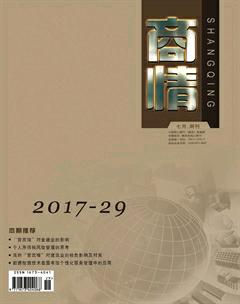Said's Inspirations for His Postcolonial Theory from Foucault
沈岳琳
【Abstract】In French philosopher Michel Foucault s theory, power, knowledge and discourse are an entirety which are entwined with each other. His discourse theory enlightens post-colonists and becomes the foundation of post-colonialism. Edward Said is the prominent representative. In his Orientalism, he studies texts and points out the implied power relationship with Foucaults power theory.
【Key words】power discourse knowledge Orientalism cultural hegemony
French philosopher Michel Foucaults power and discourse are the core in his theory, which are entwined with each other. His contention was that knowledge legalizes the structure of domination, which is always characterized with oppression, imprisonment and distribution of power. His discourse theory inspired post- colonists and became the foundation of post- colonialism. They studies texts and points out the implied power relationship and the cultural domination of West over East using Foucaults discourse theory.
1. Power and Knowledge in Orientalism
Said, in his postcolonial theory, analyzes and discusses orientalism, strategies of discursive revolutions, and a blueprint for an ideal culture. For these theoretical contributions, Foucault is absolutely Saids inspirations. He drew on Foucaults theory of knowledge- power relations to analyze orientalism, revealing that orientalist philosophies and cultural hegemonism or hegemonic discourse constitute the essence of orientalism.
Said uses this conclusion to analyze Orientalism in western world. Sais argues that the oriental knowledge is just like that observed by Foucault. It is not the real reflection to the real eastern world. Instead it is full of power, and this power in orientalism is much more obvious than that is other fields. In fact, under the influence of power, the reflection is far from real. The knowledge, produced from power, to some degree, is a kind of fabricated world created by the western. The eastern, the eastern people and the eastern world are all created and distorted. Of course this distortion, for most of the time, is a kind of subconscious behaviour. However, whether consciously or subconsciously dose not change the fact: orientalism is the production of power. Therefore it is the power that determine the orientalism instead of the real oriental world. Orientalism becomes a kind of power knowledge for his nature of power.
2. Power and Discourse in Orientalism
When Foucault infuse power into knowledge, he also put knowledge and discourse together. It is obvious that knowledge and discourse are so closely related, and the knowledge that possesses the feature of power is in fact presented by discourse. Compared to knowledge, the non-neutral color in discourse is much more prominent. In fact, knowledge at least gives an impression of indifference and objectivity from appearance. But discourse is different. When a discourse is produced, the intention, the goal, the subject and object, as well as true or false must be all considered. Therefore, discourse can more successfully represent the power in it. Result from this, Said infused the conception of discourse into his Orientalism by using Orientalism discourse to replace Orientalism knowledge. He said the discourse theory in Foucaults The Archaeology of Knowledge and Discipline and Punish is very useful and helpful for me to grasp the idea in Orientalism. From Saids standpoint, the huge system of Orientalism could not be understood and grasped without observing it as a discourse system. The using of conception of discourse represents more successfully that knowledge and power coexisted in the united entirety. Foucault said that power and knowledge are interrelated in discourse. Said can not agree it more. From his point of view, the Orientalism discourse is actually the unity of the oriental knowledge and the occidental hegemony. Orientalism is a kind of discourse, a hegemonical discourse, therefore cultural hegemony is discourse hegemony accordingly.
All in all, the application of Foucaults power, knowledge and discourse theory reveals that the nature of Orientalism is a cultural hegemony as well as hegemonical discourse from the occidental to the oriental with the goal of controlling the oriental spiritually.
References:
[1]Foucault, Michel. Beyond Structuralism and Hermeneutics.London: Harvester Wheatsheaf, 1982.
[2]Said, Edward. Culture and Imperialism. New York: Random House, 1993.
[3]Stokes, Philip. Philosophy: 100 Essential Thinkers. New York:Enchanted Lion Books, 2004.endprint

